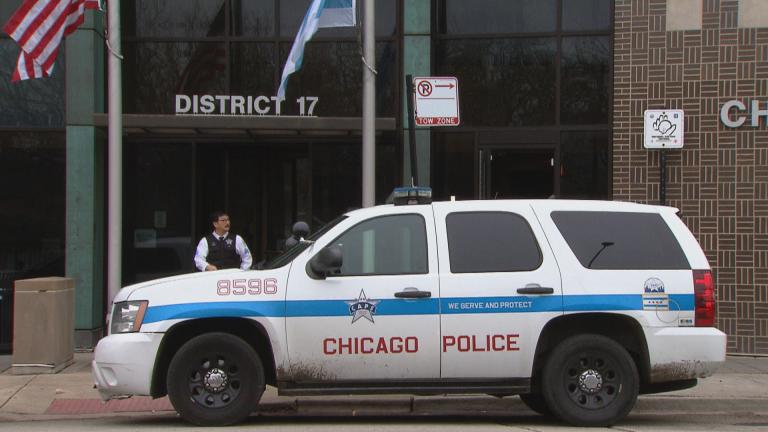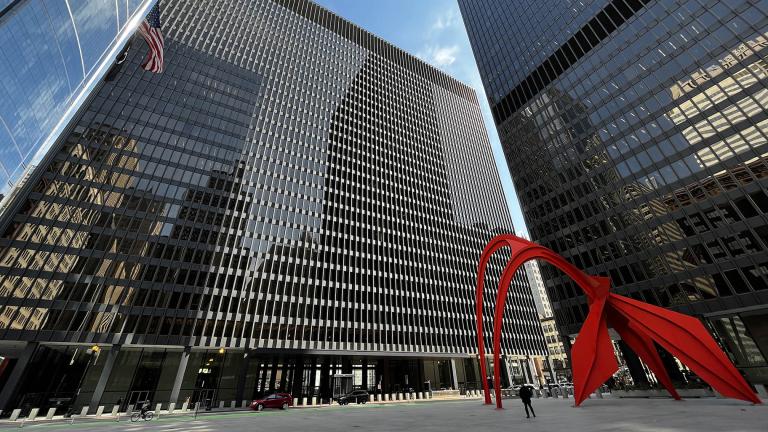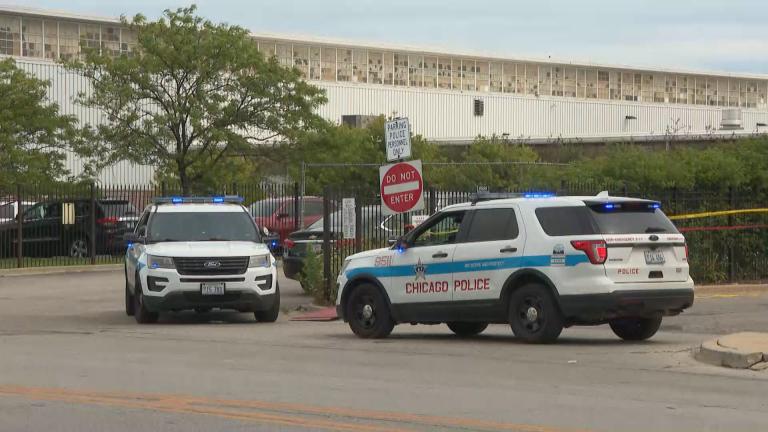A proposal from Mayor Lori Lightfoot to fight crime by going after the profits earned by Chicago’s gangs advanced Thursday over the objections of progressive alderpeople and civil rights groups.
The 10-4 vote by the Chicago City Council’s Public Safety Committee tees up a showdown over the controversial measure at Wednesday’s full City Council.
Lightfoot introduced the original version of the measure nearly five months ago as part of an effort to reset her approach to public safety after a year that saw more than 800 homicides and soaring numbers of carjackings. The measure’s detractors say it would target Black and Latino Chicagoans and do nothing to stop violent crime.
Alds. Roderick Sawyer (6th Ward); Raymond Lopez (15th Ward); Harry Osterman (48th Ward) and Matt Martin (47th Ward) voted against the proposal.
Ald. Jason Ervin (28th Ward) was the only alderperson to speak in support of the measure.
“We want tools that are going to help curtail the activity that’s happening on the street,” Ervin said, adding that the residents of his West Side ward are desperate for new strategies to fight crime.
Deputy Mayor for Public Safety John O’Malley and Chicago Police Department Deputy Chief Ernest Cato told alderpeople the measure would give them a new way to fight crime by threatening the only thing that gang leaders care about — their money.
Cato called the measure a “strong tool for deterrence” that was carefully crafted to prevent it from being used to seize “a car that a grandmother has been driving.”
Cook County Public Defender Sharone Mitchell has led the opposition to the measure, saying that it would only be used “to take a lot of Camrys and Civics from unsuspecting grandmas, they’ll sue a bunch of poor people that the city will end (up) having to pay damages back to …. and it’ll do nothing to actually stop shootings.”
Ed Yohnka, director of communications and public policy for the ACLU of Illinois, called the mayor’s proposal “ill-conceived” and said Thursday’s nearly two-hour long hearing served only to highlight its “ineffectiveness in rooting out the causes of crime and the lack of any evidence that this ordinance would benefit any Chicago resident.”
O’Malley and Cato were repeatedly pressed by members of the City Council’s Progressive Caucus to share evidence backed up by data that similar laws had been effective in reducing gang violence. Both acknowledged that they have no evidence to show that the proposal has worked in other cities and states.
“I would think there is evidence,” O’Malley said. “We don't have it, fair point. But if it were not a deterrent, I don't think asset forfeiture would exist.”
Ald. Mike Rodriguez (22nd Ward) said that the proposal was based on an outdated strategy that was never truly effective.
“This is an 80s-based strategy for 2022 problems, and I’d argue that this didn’t work in 1980 either,” said Rodriguez, who is not a member of the Public Safety Committee and could not vote Thursday.
Ald. Rossana Rodrigez Sanchez (33rd Ward) said the measure would “hurt the very communities that it is designed to help.”
The measure is also opposed by Fraternal Order of Police Lodge 7 President John Catanzara who called it “political theater.”
Lightfoot introduced the new initiative after her efforts to reduce crime during the summer with a “whole of government” approach that was largely unsuccessful. Shootings rose 9.4% between Jan. 1 and Sept. 6 as compared with the same period in 2020, while murders rose 2.6%, according to Chicago Police Department data.
But the measure stalled under intense criticism. Modeled after the 1993 Illinois Streetgang Terrorism Omnibus Prevention Act, Chicago’s version of the law would only be used to go after large amounts of money or assets, said Elena Gottreich, the deputy director of prosecutorial strategies for the Chicago Police Department.
The revised proposal would be used only to target gang leaders and the organizations, rather than low-ranking gang members, O’Malley said.
In addition, the measure requires those facing the loss of property to be notified before the court case against them begins in earnest. Owners could prevent the loss of their property by convincing a judge they did not know it had been used for criminal purposes or “acquired through street gang related activity.”
In addition, if the city is seeking to seize a car, a family member could be given the vehicle if they can prove the loss of the vehicle would cause a financial hardship because they need it to get to work or to transport other family members, according to the revised proposal.
Ald. Howard Brookins (21st Ward), a defense attorney who is running to be a Cook County judge, said that provision of the proposed law was unworkable and would not likely protect anyone from having their property seized.
The measure calls for each offense to be punished with fines ranging from $10,000 to $15,000 for first offenses and $20,000 to $30,000 for second offenses. Lightfoot has promised that at least half of the fines collected by the city would have to be earmarked to help the victims of gang crimes.
Had the law been in place in 2020, it could have been used in 258 cases to seize $570,000 in cash and property, according to data compiled by the Chicago Police Department. In 2021, it could have been used in 220 cases to seize $539,000, according to the data.
Between August 2019 and Dec. 31, 2021, 94% of all cases where assets could have been seized amounted to less than $20,000, according to data provided to Ald. Maria Hadden (49th Ward).
“If this ordinance passes, at best, it will make it seem like the mayor and City Council are doing something significant to address crime and give false hope to a frustrated police department and public looking for more tools in combating organized criminal activity,” Hadden said in a statement. “At worst, this ordinance will encourage two powerful city departments — police and law — to push the limits on respecting civil rights and exhaust valuable time and tax dollars in exchange for negligible financial gain. The passage of this ordinance would be a failure for the city of Chicago.”
Contact Heather Cherone: @HeatherCherone | (773) 569-1863 | [email protected]





